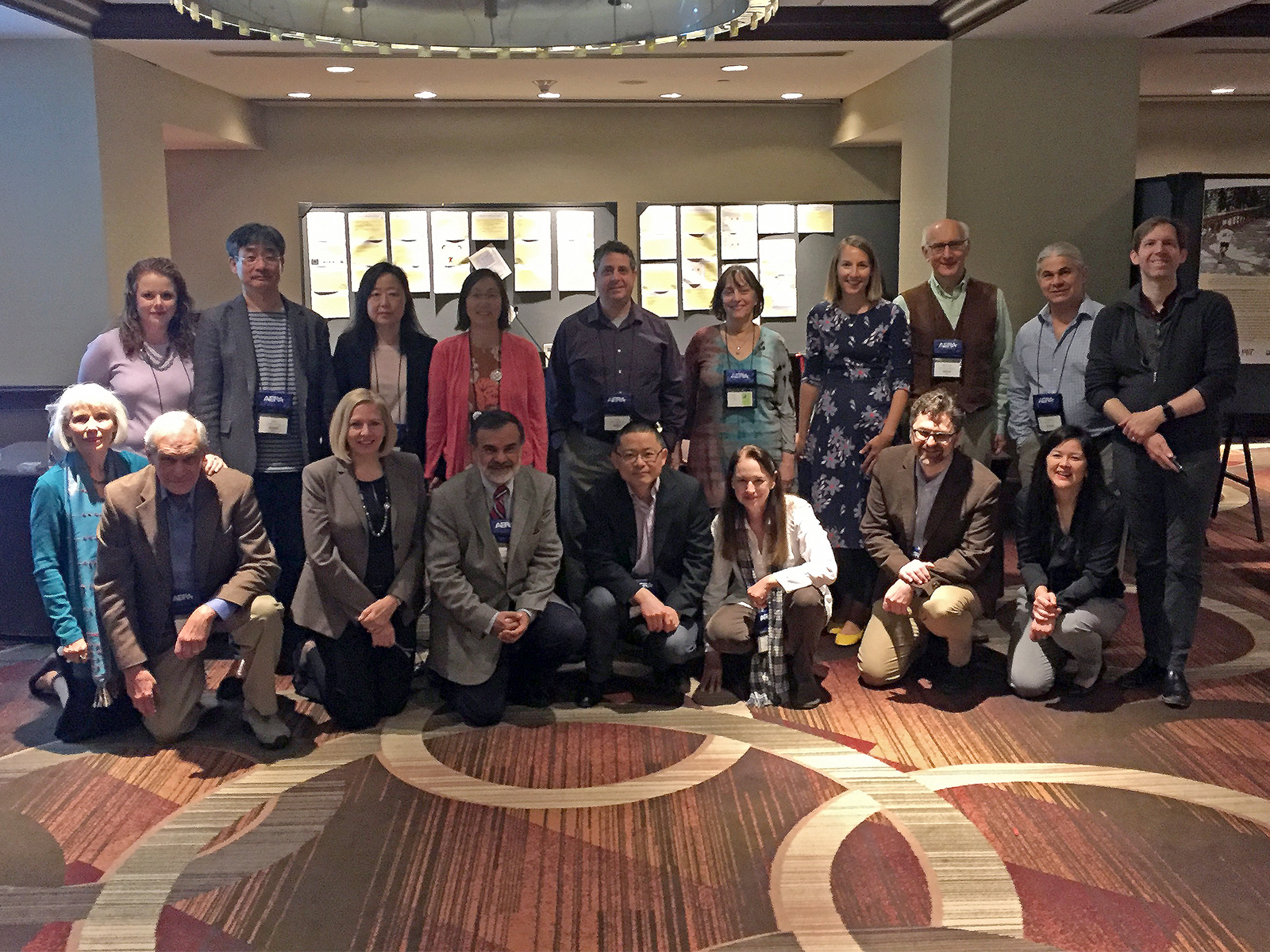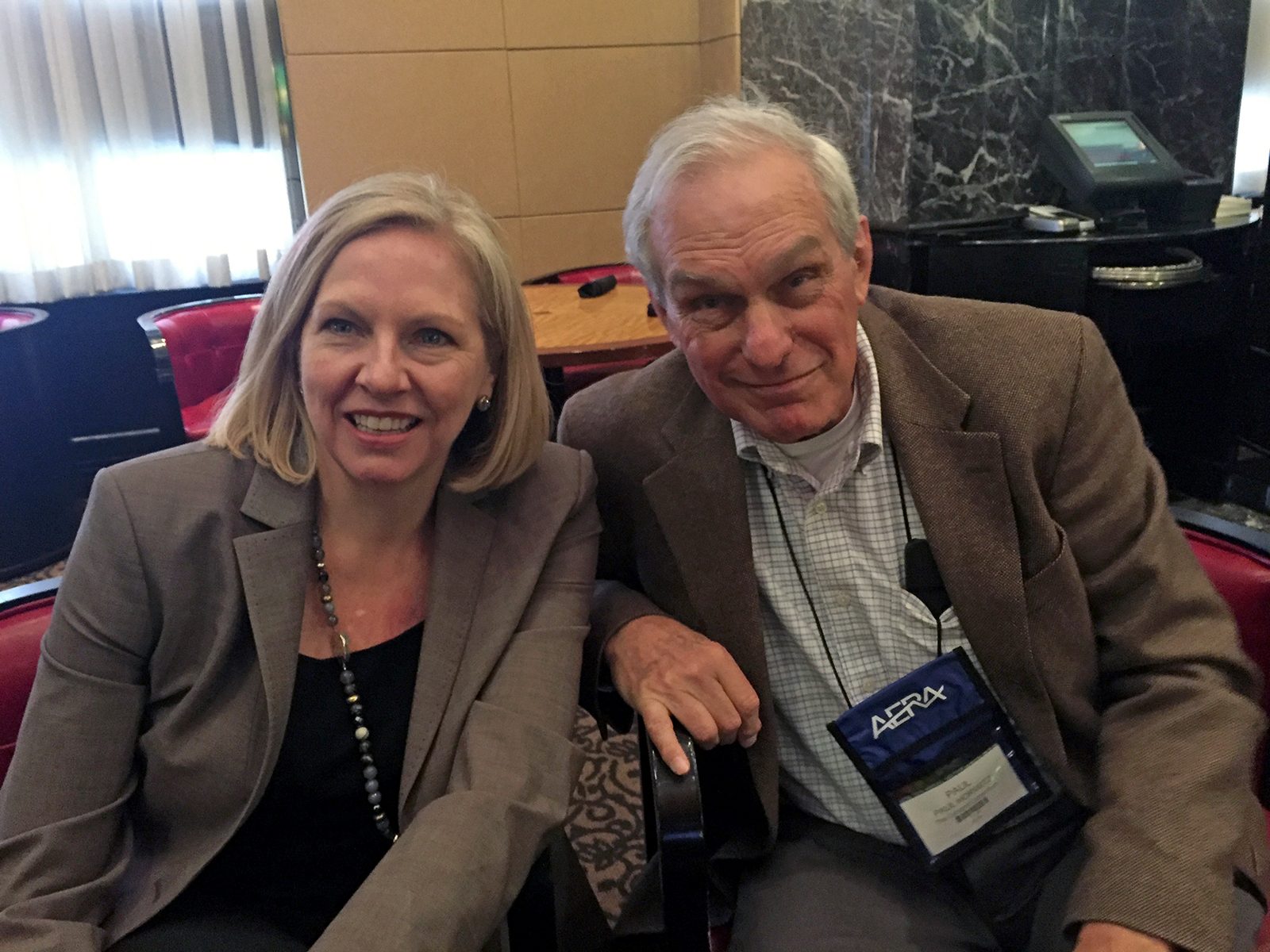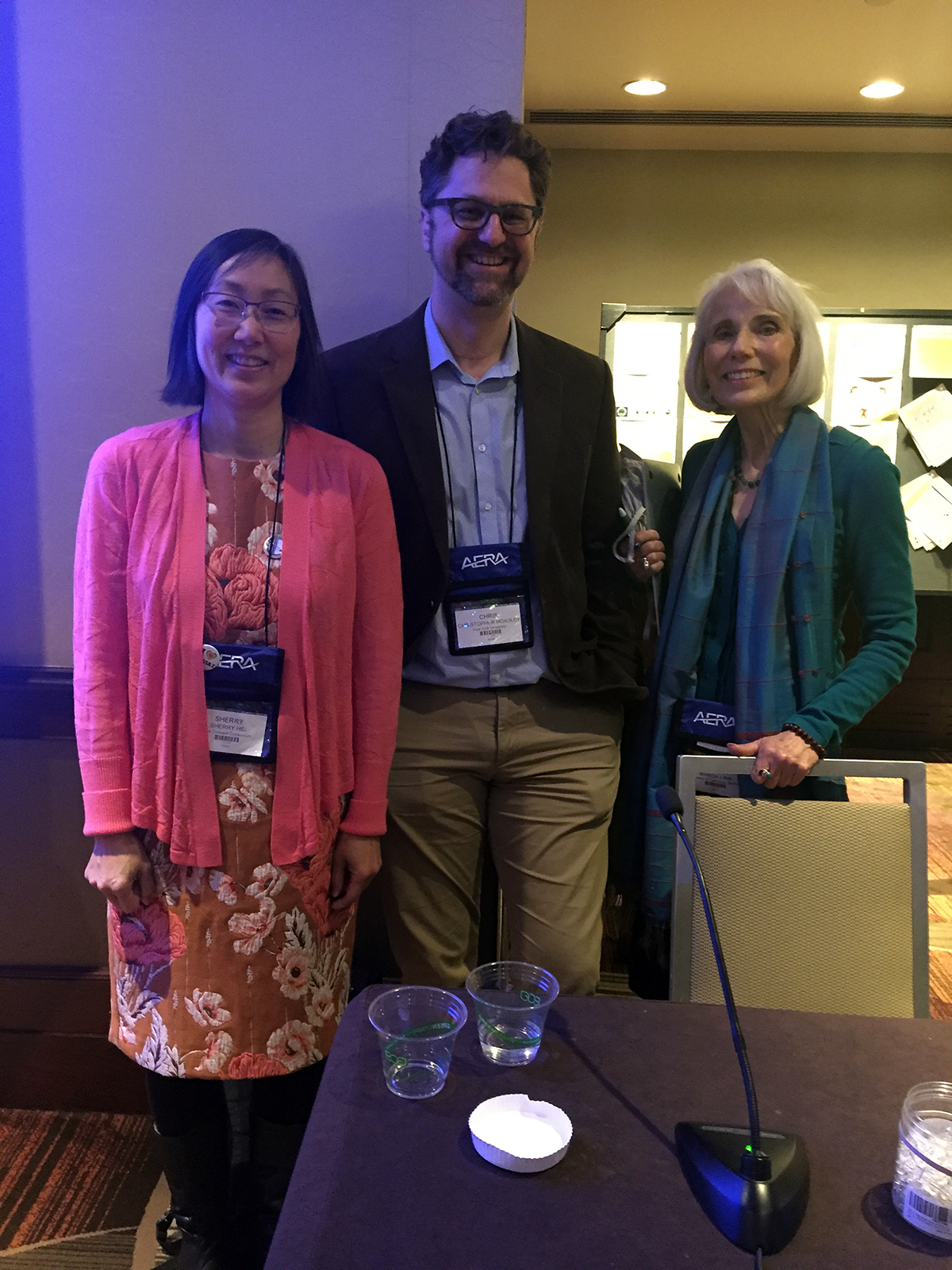Several researchers and senior scientists from the Concord Consortium traveled to New York City in April for the annual meeting of the American Educational Research Association (AERA). A record 17,148 educators and researchers around the world attended AERA 2018, which offered 900 sessions in eight hotels centered in bustling Times Square.
A poster with research from Hee-Sun Lee and Amy Pallant focused on the design of formative science assessments in which a system interprets students’ constructed scientific arguments via natural language processing and scores them automatically using machine learning technologies to provide tailored feedback and facilitate revision and improvement. Paul Horwitz and colleagues described digital learning environments involving collaborative problem-solving, using an evidence-centered design framework.
Carolyn Staudt, together with collaborators from Millersville University of Pennsylvania and Stroud Water Research Center, shared promising results for teaching environmental sustainability using their Model My Watershed software. They found that place-based watershed modeling is an effective tool for increasing students’ understanding of watersheds, encouraging personal environmental action, and serving as a critical incident for watershed engagement.
Angela Kolonich from the CREATE for STEM Institute at Michigan State University and Dan Damelin from the Concord Consortium presented results from the Interactions project, a collaboration between the two institutions. They shared findings from a study pairing an educative, project-based, 3D science curriculum with professional learning of inclusive 3D instruction. Findings indicate that providing teachers with sustained, research-based curricular and instructional supports assists them in making instructional decisions that bridge 3D learning with the unique needs of their students.
Sherry Hsi and Hee-Sun Lee participated in a structured poster session on the theme of knowledge integration in science. The session, chaired by Professor Marcia Linn and joined by colleagues and alumni from the Technology-Enhanced Learning Collaborative and WISE Group at the University of California, Berkeley, demonstrated multiple examples of how knowledge integration as a curricular design framework builds toward a more coherent understanding of the many ideas students have about science. Discussants Bat-Sheva Eylon and Esther Bagno attended the session from the Weizmann Institute of Science in Israel to reflect upon the influence the knowledge integration framework has had on the design of learning in middle and high school science instruction, and on the professional development of teachers internationally.
On the final morning of AERA, a special poster session commemorated the Concord Consortium’s founder, Robert Tinker. Posters celebrated his immeasurable impact in educational technology over the past 40 years and highlighted his continued influence on the field. As the international group of 14 presenters provided brief overviews of each poster, the sharing quickly gave way to tributes and personal stories about how Bob had inspired, nurtured, and fueled such a diverse variety of personal research trajectories and programs. (Read more stories and share your own at https://rememberingbob.concord.org)

The posters included examples of probeware, model building, online professional development, mixed-reality applications, video-based data for inquiry, tools for learning about solar energy, geosciences, biology, thermodynamics, and more. As a whole, the session featured crosscutting themes of simulation and modeling, pedagogical content models, innovative assessment, learner analytics, collaborative learning, and inquiry-based laboratories. Chris Hoadley from NYU and Marcia Linn from UC Berkeley closed the session with heartfelt remarks about Bob’s passion for building powerful tools, his knack for initiating productive and collaborative partnerships, and his persistent belief that students were capable of doing real science with authentic tools if given the opportunity to play, be curious, and ask questions.
To continue to honor Bob’s legacy at future AERA conferences, Chad Dorsey and Sherry Hsi announced the Robert F. Tinker Scholarship for emerging scholars during the AERA 2018 Joint SIG Business meeting of the Learning Sciences and Advanced Technologies for Learning. This award will be presented annually to a graduate student or postdoc member of the Learning Sciences and/or Advanced Technologies for Learning SIG to support travel to deliver an accepted AERA poster or presentation. We look forward to this ongoing opportunity to build the field along the themes that were important to Bob: tools for inquiry, learning and collaboration, data explorations, sustainability and the environment, tinkering with models, playful experimentation, online learning, and learning everywhere.




One thought on “Sharing Research Results and Special Poster Session to Commemorate Robert Tinker at AERA 2018”
Comments are closed.
Great potential – but flat presentation